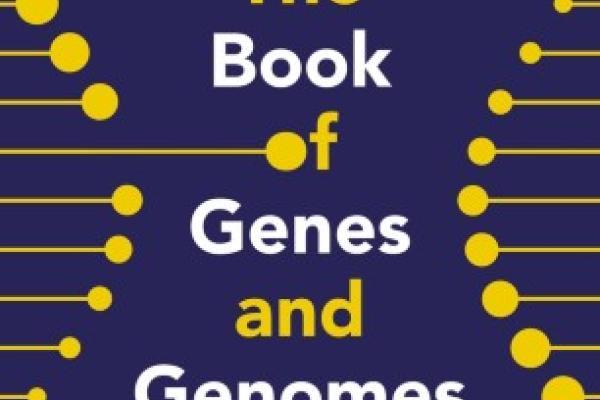Haga authors 'The Book of Genes and Genomes'

Susanne B. Haga, PhD, associate professor of medicine and co-director of educational programs at the Duke Center for Applied Genomics & Precision Medicine has authored a new book, "The Book of Genes and Genomes" providing readers an easy to understand overview of the advances in genetics and genomics.
We spoke with Dr. Haga about her new book:
Congratulations on the publication of your book! How long has this been in the works?
We've been working on this for several years actually. The idea was conceived around 2007 with Dr. Hunt Willard, former director of the Duke Institute for Genome Sciences & Policy.
What was your favorite topic to write about?
Areas related to medical genetics. I am trained in this area and very passionate about it.
You talk about cutting-edge advances and new technologies in genome science, what do you feel has or will have the most impact?
There’s quite a bit to digest as genome technologies are used in so many fields of science and medicine, such as agriculture and environmental sciences. My hope is that readers will gain an appreciation of its growth and myriad applications and also recognize that with the advances in science comes the need for greater social responsibility and engagement.
Can you talk more about the family health history chapter and its importance?
Family health history is often referred to as a genetic test (and one that doesn’t cost anything!) It remains one of the best predictors of health risks and is probably not well understood or appreciated by the public. Tools continue to be developed that will help in the future to better collect information about a patient's family health history and improved utilization by the provider.
What’s the biggest takeaway in your book you’d share with the community?
The sheer scope is quite daunting and difficult to capture in such short chapters, but again, my hope is to introduce and perhaps pique their interest in a certain area that they can read further about.
For someone who knows nothing about genes or genomes, can you explain why this is such an exciting field to study, teach and be a part of?
After the past few years, I hope that everyone can see how important genes and genomes are with the identification and surveillance of SARS-CoV2. Not all of the examples are front-page news today, but more than not, as advances continue, we all will be impacted by the fields of genetics and genomics and a little knowledge is definitely helpful to make informed decisions for ourselves, family, community, and environment. It’s both exciting and challenging to teach with all of the new developments in the past few decades.
You spend a lot of time teaching, what are your students most excited about and how does this teaching role fulfill your career aspirations?
I love to teach and this book is an extension of teaching. It’s extremely rewarding to see students get excited by this field, and some even decide to pursue research in it after taking my classes. I think they are enthralled with the scope of the technologies and new applications and that there is still so much to be learned that will be advanced with these technologies.
When did you first get interested in studying genomics and incorporating it into teaching?
My first introduction to genetics was in 9th grade in a high school biology class. I loved the simplicity and precision of Mendel’s work, but it really was anything but simple. Nonetheless, I stuck with science through college and obtained a PhD in human genetics, during an amazingly transformative period with the rise of sequencing and the Human Genome Project.
What course at Duke are your currently teaching?
PHARM 370, BIO 325, and MGM120FS, just to name a few. Find Duke classes taught by Dr. Haga using Duke Hub.
What’s next for you?
Keep on teaching, and continuing to work on ways to improve patient understanding about genetics/genomics!
Find out more about Dr. Haga's book here.